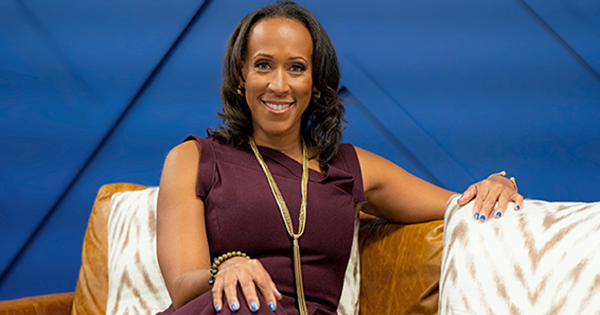Meet the Millionaire Maker for Black Women in Corporate America
Women’s leadership expert and executive coach, Christy Rutherford has assisted her clients with getting over $14 million in salary raises since 2020, with seven Black women receiving seven-figure compensation packages.
Since 2020, companies have touted their commitment to diversity, equity, and inclusion and spent approximately $7.5 billion on related efforts. However, despite the increase in efforts, the progress to increase inclusion and diversity has been slow or nonexistent.
Currently, organizations like Goldman Sachs and Bank of America are dialing back their DEI efforts, and while these programs are under attack in different industries, a South Carolina State alumna is unbothered by the battle because she has been breaking barriers for over twenty years.
Christy comments, “My superpower is helping people see a greater version of themselves, and this inherent gift contributed to executive-level success in my previous career. I mentored hundreds of people before I became an ‘executive coach.’ We (Black officers in the US Coast Guard) lagged behind our white male counterparts at the mid-levels of leadership, and the gap widened with every promotion. In 2007, I created a mentorship program to solve that problem. In the past five years, the organization has had the largest number of senior Black officers in history. I have a long history of creating leadership pipelines where women and minorities can flourish in their jobs.”
A Harvard Business School alumna, Rutherford completed the Program for Leadership Development and three negotiation courses to learn how to translate and apply her career guidance from the military to the corporate world.
Christy continues, “In the past ten years, I have talked to hundreds of women who feel overworked, underpaid, and underemployed. They want to be promoted but don’t ask. And when they ask, they usually say, ‘What are you going to give me? Or ‘What do you think is fair?’ Women put the onus on their leaders to tell them their value and continue to be disappointed year after year.”
What women are doing to be promoted makes them unpromotable,” Rutherford says. “Women exhaust themselves from working harder, getting multiple advanced degrees, volunteering for extra projects, and being available after hours and on the weekends. When leaders look for people to promote, they overlook the tired and task-laden woman and give the role to a less qualified person who can handle more work. ”
McKinsey’s Women in the Workplace study consistently reports that Black women lag behind their white counterparts at every level of leadership. Their 2023 report also showed the disparities in promotions started to widen for Black women at the manager level in comparison to Black men.
Christy shares that the women who are admittedly overworked, underpaid, and underemployed contribute to the talent gap that has persisted in the job market for at least ten years.
She assisted her global clients with doubling and tripling their salaries many times in less than six months. “The most significant change I get my clients to make that results in a salary increase and promotion is prioritizing their self-care. This may not be the popular opinion but holding high-achieving women accountable to taking care of themselves is no easy feat. I worked 16-hour days, created high-performing teams, and set national standards for my organization. While I had numerous degrees and countless awards, I never adopted a consistent self-care routine. When I finally earned my seat at the executive table, within 18 months, I mentally and physically collapsed and ended up resigning with 3.5 years left to retire with a full pension.”
“It was devastating,” Christy soberly shares, “and that’s why I’m so passionate about what I do: We all shouldn’t have to learn this lesson the hard way.”
Burnout, stress, and poor mental health have become normalized conversations. Professional articles cite what organizations should do to provide psychological safety for Black women; Rutherford contends that Black women have to take the reins of their careers and self-care and not wait for a policy to change their circumstances.
She believes that it’s possible for women to have it all – a healthy body, a great career, and balanced families and offers five suggestions for how women can restore their mental and physical health and set themselves up for promotion:
1. Meditate for five minutes three times a week
2. Workout three times a week for 30 minutes
3. Sleep for eight hours three times a week
4. Set a monetary target at least 30% higher than your current salary and look for jobs to match that.
5. Create a Personal Board of Advisors with a mentor, sponsor, and coach.
She offers, “A mentor is someone who has been where you want to go and will show you how to get there. A sponsor has power and will use it to open doors for you. A coach (non-company sponsored) will hold you accountable for taking care of yourself.”
She believes that Black women can close the pay gap themselves by owning their true value and implementing the five suggestions mentioned. It has worked for her clients time and time again.
Overall, Christy’s goal is to get 10,000 women $1 billion in salary raises by 2025. Find out more about her work and events here.
Source link
[gpt3]rewrite this content and keep HTML tags

Women’s leadership expert and executive coach, Christy Rutherford has assisted her clients with getting over $14 million in salary raises since 2020, with seven Black women receiving seven-figure compensation packages.
Since 2020, companies have touted their commitment to diversity, equity, and inclusion and spent approximately $7.5 billion on related efforts. However, despite the increase in efforts, the progress to increase inclusion and diversity has been slow or nonexistent.
Currently, organizations like Goldman Sachs and Bank of America are dialing back their DEI efforts, and while these programs are under attack in different industries, a South Carolina State alumna is unbothered by the battle because she has been breaking barriers for over twenty years.
Christy comments, “My superpower is helping people see a greater version of themselves, and this inherent gift contributed to executive-level success in my previous career. I mentored hundreds of people before I became an ‘executive coach.’ We (Black officers in the US Coast Guard) lagged behind our white male counterparts at the mid-levels of leadership, and the gap widened with every promotion. In 2007, I created a mentorship program to solve that problem. In the past five years, the organization has had the largest number of senior Black officers in history. I have a long history of creating leadership pipelines where women and minorities can flourish in their jobs.”
A Harvard Business School alumna, Rutherford completed the Program for Leadership Development and three negotiation courses to learn how to translate and apply her career guidance from the military to the corporate world.
Christy continues, “In the past ten years, I have talked to hundreds of women who feel overworked, underpaid, and underemployed. They want to be promoted but don’t ask. And when they ask, they usually say, ‘What are you going to give me? Or ‘What do you think is fair?’ Women put the onus on their leaders to tell them their value and continue to be disappointed year after year.”
What women are doing to be promoted makes them unpromotable,” Rutherford says. “Women exhaust themselves from working harder, getting multiple advanced degrees, volunteering for extra projects, and being available after hours and on the weekends. When leaders look for people to promote, they overlook the tired and task-laden woman and give the role to a less qualified person who can handle more work. ”
McKinsey’s Women in the Workplace study consistently reports that Black women lag behind their white counterparts at every level of leadership. Their 2023 report also showed the disparities in promotions started to widen for Black women at the manager level in comparison to Black men.
Christy shares that the women who are admittedly overworked, underpaid, and underemployed contribute to the talent gap that has persisted in the job market for at least ten years.
She assisted her global clients with doubling and tripling their salaries many times in less than six months. “The most significant change I get my clients to make that results in a salary increase and promotion is prioritizing their self-care. This may not be the popular opinion but holding high-achieving women accountable to taking care of themselves is no easy feat. I worked 16-hour days, created high-performing teams, and set national standards for my organization. While I had numerous degrees and countless awards, I never adopted a consistent self-care routine. When I finally earned my seat at the executive table, within 18 months, I mentally and physically collapsed and ended up resigning with 3.5 years left to retire with a full pension.”
“It was devastating,” Christy soberly shares, “and that’s why I’m so passionate about what I do: We all shouldn’t have to learn this lesson the hard way.”
Burnout, stress, and poor mental health have become normalized conversations. Professional articles cite what organizations should do to provide psychological safety for Black women; Rutherford contends that Black women have to take the reins of their careers and self-care and not wait for a policy to change their circumstances.
She believes that it’s possible for women to have it all – a healthy body, a great career, and balanced families and offers five suggestions for how women can restore their mental and physical health and set themselves up for promotion:
1. Meditate for five minutes three times a week
2. Workout three times a week for 30 minutes
3. Sleep for eight hours three times a week
4. Set a monetary target at least 30% higher than your current salary and look for jobs to match that.
5. Create a Personal Board of Advisors with a mentor, sponsor, and coach.
She offers, “A mentor is someone who has been where you want to go and will show you how to get there. A sponsor has power and will use it to open doors for you. A coach (non-company sponsored) will hold you accountable for taking care of yourself.”
She believes that Black women can close the pay gap themselves by owning their true value and implementing the five suggestions mentioned. It has worked for her clients time and time again.
Overall, Christy’s goal is to get 10,000 women $1 billion in salary raises by 2025. Find out more about her work and events here.
[/gpt




